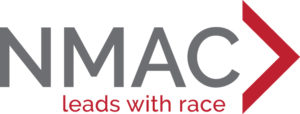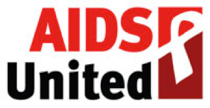

Embargoed for Release: Thursday, September 7, 2017, 9:00 a.m. ET
Contacts:
Chip Lewis, 202.213.8939, clewis@nmac.org Richard Sorian, 202.215-9256, rsorian@aidsunited.org
$1 MILLION IN FUNDING TO HELP HIV ORGANIZATIONS IMPACTED BY HURRICANES HARVEY AND IRMA ANNOUNCED AT USCA
Sept. 7, 2017 – A $1 million fund to help HIV organizations impacted by Hurricanes Harvey and Irma was announced today at the opening of the 21st annual U.S. Conference on AIDS in Washington, DC. The $1 million is being donated by Gilead Sciences.
The announcement was made at the USCA’s opening plenary as the conference honored those working in communities devastated by the hurricane. Delegates from the affected regions were on stage for the announcement. Grants from these funds are being coordinated by AIDS United in collaboration with NMAC.
“Gilead’s generous contribution will make a tremendous difference for people living with HIV and for organizations serving them that were ravaged by Hurricanes Harvey and Irma,” said NMAC Executive Director Paul Kawata. “We must make sure that we reach the organizations most in need as rapidly as possible.”
AIDS United will support the administration of the funds as part of the rapid response arm of its new Southern HIV Impact Fund. NMAC will appoint an HIV Hurricane Relief Advisory Panel made up of local community leaders to identify local needs and priorities to support AIDS United grantmaking.
“There is no greater emergency than the devastation of these powerful hurricanes,” said AIDS United CEO Jesse Milan Jr. “We are thankful this rapid grantmaking process is in place and thrilled that Gilead is making available up to $1 million to support relief efforts for the HIV community.”
In addition to the $1 million donation by Gilead Sciences, AIDS United has allocated $150,000 from the Southern HIV Impact Fund. AIDS United today released a request for applications for organizations in the affected communities. The awards will be made on a rolling basis.
“With hurricane-impacted regions facing a long recovery process, it is more important than ever that the critical services provided by HIV organizations in these areas continue to reach those in need,” said Gregg H. Alton, Executive Vice President, Corporate and Medical Affairs, Gilead Sciences. “Gilead, AIDS United, and NMAC are committed to supporting their efforts to restore and maintain programs.”
The U.S. South is an epicenter of the HIV epidemic in the U.S. According to the U.S. Centers for Disease Control and Prevention (CDC), more than half of new AIDS diagnoses and deaths occurred in the south. In 2015, Florida ranked first among states in terms of new diagnoses, Texas ranked third, and Louisiana ranked 11th.
“Hurricane Harvey adds a heightened sense of urgency to the organizations serving people living with HIV/AIDS,” said John Barnes, executive director of Funders Concerned About AIDS, which brought together Gilead Sciences and other partners to create the Southern HIV Impact Fund. “We are calling on organizations across the country to join Gilead Sciences and others in supporting the work that must be done to reverse these troubling trends.”
Organizations, businesses and individuals can make donations to the AIDS United Southern HIV Impact Fund at here.
NMAC leads with race to urgently fight for health equity and racial justice to end the HIV epidemic in America. Since 1987, NMAC has advanced our mission through a variety of programs and services, including: a public policy education program, national and regional training conferences, a treatment and research program, numerous electronic and print materials, and a website: https://www.nmac.org/. NMAC also serves as an association of AIDS service organizations, providing valuable information to community-based organizations, hospitals, clinics, and other groups assisting individuals and families affected by the HIV epidemic.
AIDS United’s mission is to end the AIDS epidemic in the U.S. through strategic grant-making, capacity building, formative research and policy. AIDS United works to ensure access to life-saving HIV/AIDS care and prevention services and to advance sound HIV/AIDS-related policy for U.S. populations and communities most impacted by the epidemic. To date, our strategic grant-making initiatives have directly funded more than $104 million to local communities, and have leveraged more than $117 million in additional investments for programs that include, but are not limited to HIV prevention, access to care, capacity building, harm reduction and advocacy. aidsunited.org.
###
876.2820

 Re-Scheduled Webinar March 20
Re-Scheduled Webinar March 20 Register now for the latest webinar in our Community Spotlight Series on March 21 at 3:00 PM EST. Gina Brown, Community Organizer for the Southern AIDS Coalition, will join us to talk about Women and HIV in the South.
Register now for the latest webinar in our Community Spotlight Series on March 21 at 3:00 PM EST. Gina Brown, Community Organizer for the Southern AIDS Coalition, will join us to talk about Women and HIV in the South.






 challenging. President Trump requires that we up our game. There are real lives and real money on the line. Our movement’s long-term success or failure will be greatly shaped by what happens over the next three years. 2018 is particularly important because of the midterm elections, implementation of the tax reform, getting rid of the individual mandate for health insurance, and Congress looking to cut $1.5 trillion in federal spending to pay for the tax cuts. They are seriously considering cuts to Medicare and Medicaid.
challenging. President Trump requires that we up our game. There are real lives and real money on the line. Our movement’s long-term success or failure will be greatly shaped by what happens over the next three years. 2018 is particularly important because of the midterm elections, implementation of the tax reform, getting rid of the individual mandate for health insurance, and Congress looking to cut $1.5 trillion in federal spending to pay for the tax cuts. They are seriously considering cuts to Medicare and Medicaid.





 face increased isolation and of those aging people of color, not only face this isolation but increased stigma, lack of access to care, poverty, and racism. Furthermore, when people living with HIV have achieved viral suppression and HIV is well-controlled, there is a need to be educated about other aging-related conditions. People that age with HIV face comorbidities for which they are in greater risk such as cardiovascular disease, diabetes, HIV-associated neurocognitive disorders, osteoporosis, and certain cancers. They also need to be aware of interactions between medications used to treat HIV and those used to treat age-related conditions. That’s why NMAC created the
face increased isolation and of those aging people of color, not only face this isolation but increased stigma, lack of access to care, poverty, and racism. Furthermore, when people living with HIV have achieved viral suppression and HIV is well-controlled, there is a need to be educated about other aging-related conditions. People that age with HIV face comorbidities for which they are in greater risk such as cardiovascular disease, diabetes, HIV-associated neurocognitive disorders, osteoporosis, and certain cancers. They also need to be aware of interactions between medications used to treat HIV and those used to treat age-related conditions. That’s why NMAC created the 


 Am home now and winding down from the US Conference on Aids. Was an amazing 6 days. On Wednesday did legislative visits to Sen Dick Durbin’s office, meet with Tammy Duckworth’s Legislative Assistant, Luis Gutierrez’s Legislative Assistant and a personal meeting with Jan Schakowsky (ok may have misspelled her name). Three and a half days of workshops on HIV and Aging.
Am home now and winding down from the US Conference on Aids. Was an amazing 6 days. On Wednesday did legislative visits to Sen Dick Durbin’s office, meet with Tammy Duckworth’s Legislative Assistant, Luis Gutierrez’s Legislative Assistant and a personal meeting with Jan Schakowsky (ok may have misspelled her name). Three and a half days of workshops on HIV and Aging.






 The search for a vaccine for HIV has been a 30-year-long marathon. While we have maintained a sense of urgency in the fight against HIV, we have always known that this process would be a long-term endeavor. Vaccines are some of the most cost-effective prevention strategies. They were essential in eradicating diseases like smallpox, and in bringing other diseases like measles and polio under control. We know that HIV, like many other diseases that have taken decades for a vaccine to be developed, will not go away easily.
The search for a vaccine for HIV has been a 30-year-long marathon. While we have maintained a sense of urgency in the fight against HIV, we have always known that this process would be a long-term endeavor. Vaccines are some of the most cost-effective prevention strategies. They were essential in eradicating diseases like smallpox, and in bringing other diseases like measles and polio under control. We know that HIV, like many other diseases that have taken decades for a vaccine to be developed, will not go away easily. October. The other vaccine trial, will test a ‘mosaic’ candidate and starts in sub-Saharan Africa in the coming months. Finally, the antibody-mediated prevention study (
October. The other vaccine trial, will test a ‘mosaic’ candidate and starts in sub-Saharan Africa in the coming months. Finally, the antibody-mediated prevention study (